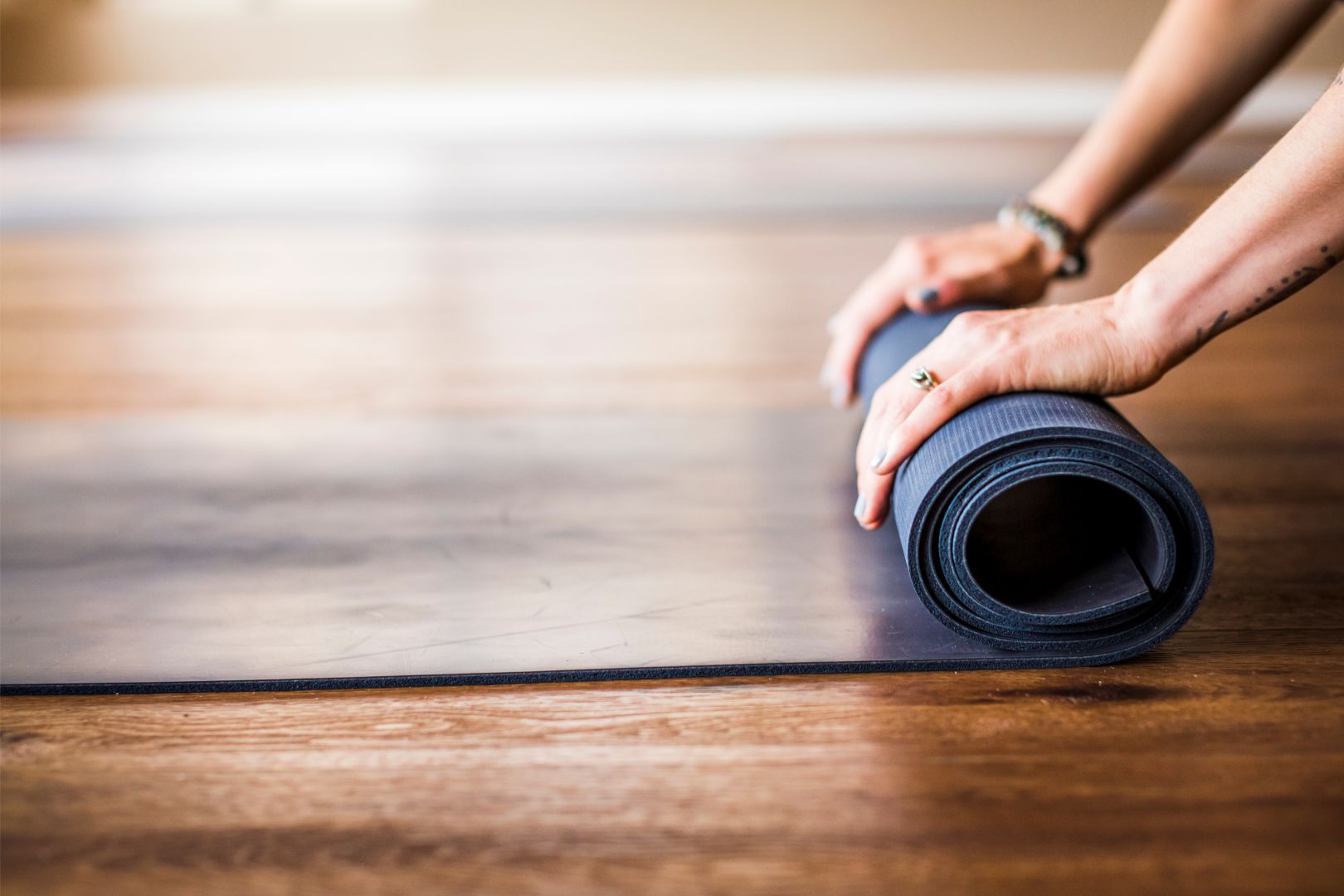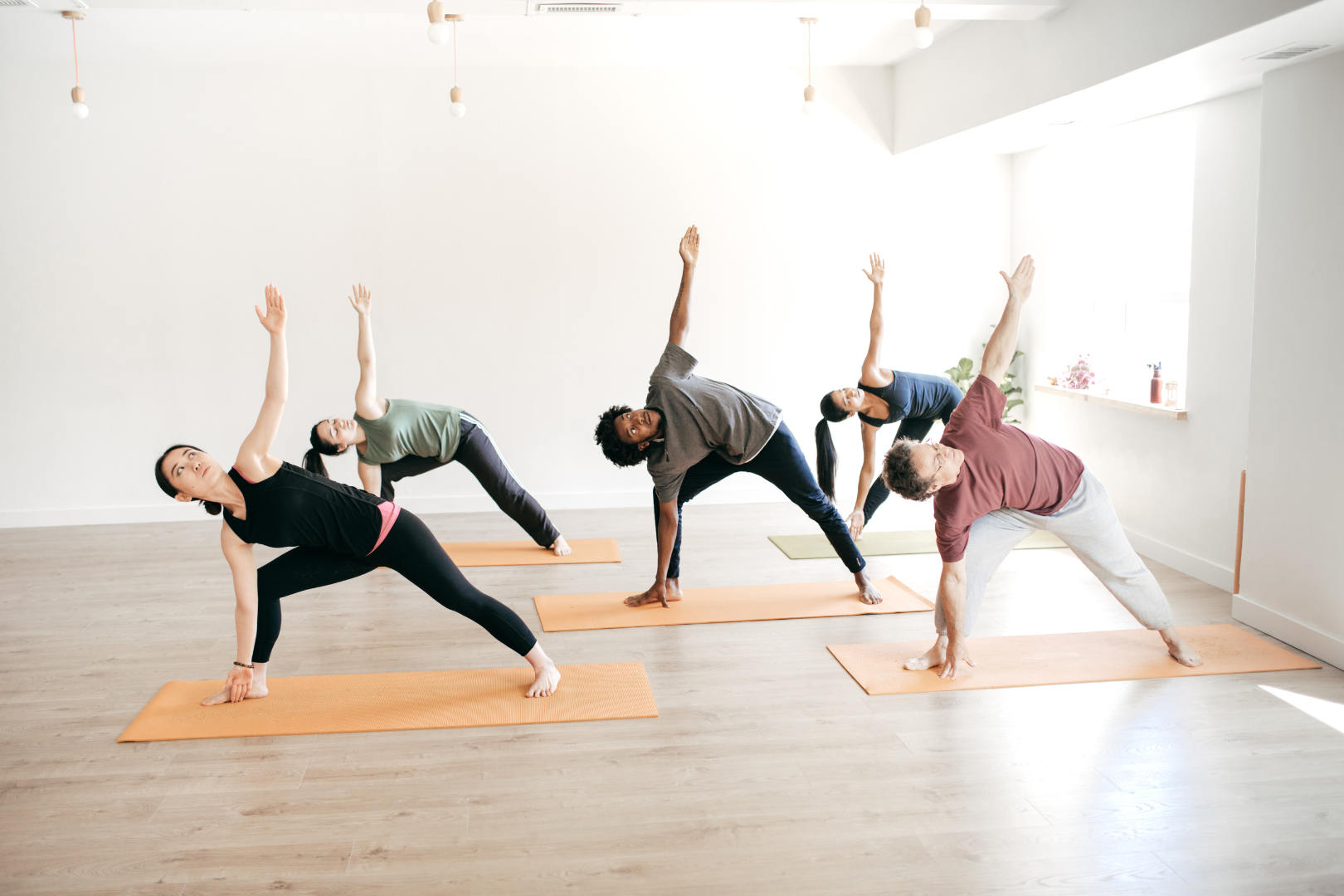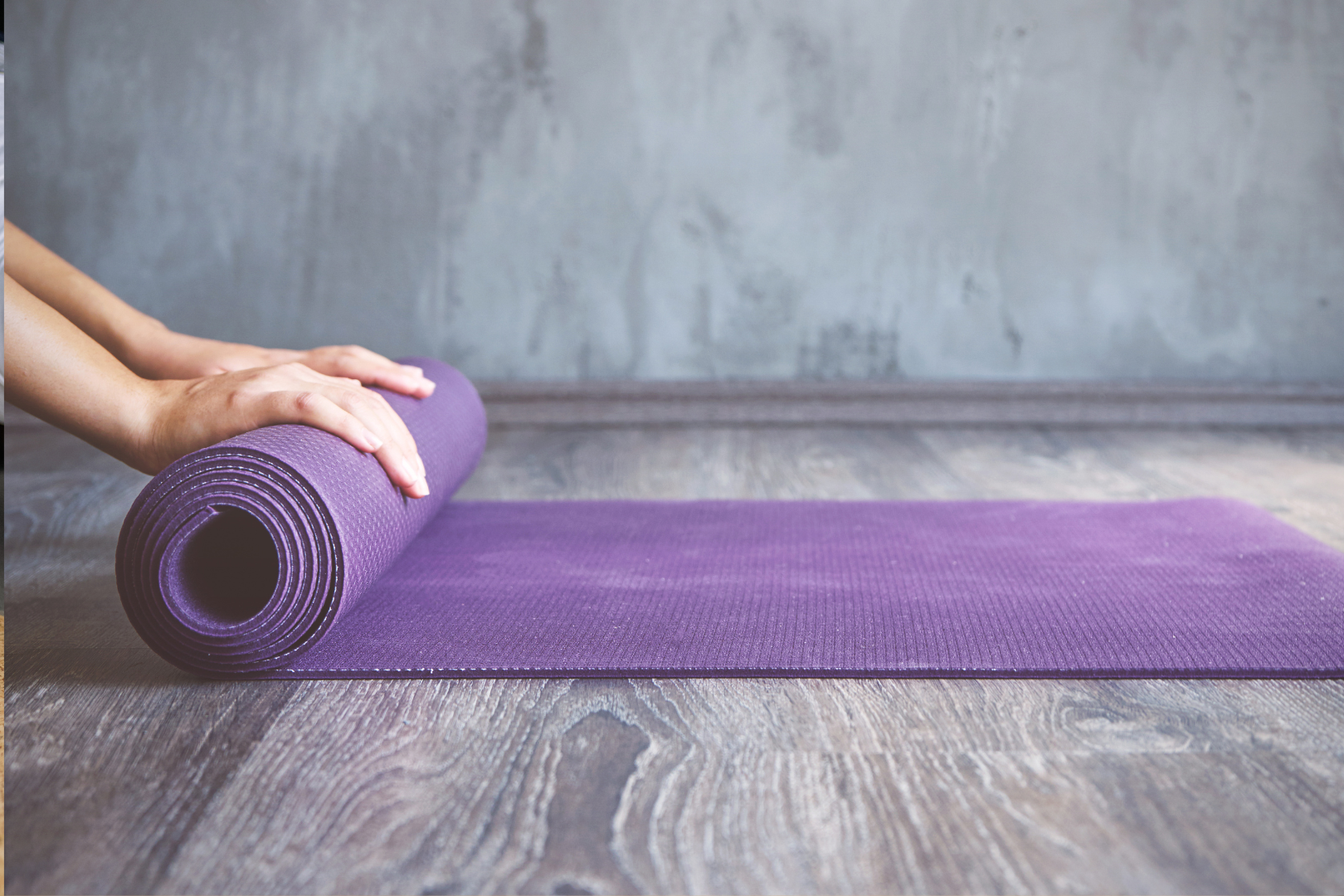Movement Classes
At ThriveLife Counselling & Wellness our goal is to help you
Grow, Change, Live and fully Thrive.
Unit #340 - 8063 199 st
Langley, BC V2Y 0E2
Welcome to Rooted ! Our 550 sq ft studio space dedicated to yoga, movement, and group classes. Are you ready to feel energized, flexible, and alive? Our movement classes are designed for all levels, blending various techniques to help you connect with your body, build flexibility, increase strength, and discover a peaceful balance.


Our classes focus intentionally on mind and body. While fitness is a component of our classes, our passion is helping people grow attunement to what their bodies and minds are needing. You will experience yoga for functional movement, and will also explore breath; movement to shift anxiety, trauma responses and other challenges; and the development of mindfulness practices that allow you to soak in all the experiences that bring you joy in your life.
Movement Classes
Hatha Yoga
Yin Yoga
Yoga for Nervous System
Yoga for Dudes
Bump to Baby Yoga
Yoga for Intense Careers
Register ahead of time for a spot !

Class Fees
"First Class Complimentary"
Single Class
Step out of the chaos and onto the mat. Whether you're a total beginner or a seasoned yogi, this is your chance to stretch, breathe, and reset.
Just one class can change your day.

Unlimited Classes
Our best value option. Breathe deeper, stretch further, and feel stronger - every day ! Unlimited access to all classes in a variety of styles to fit your needs.

10 Class Pass
More yoga. More flexibility. Less commitment.
Whether you're easing into a routine or looking for flexibility, our 10-Class Pass lets you come to yoga when you can.
Movement classes like yoga offer a wide range of benefits that can enhance both your physical and mental well-being. Here are some reasons why you might consider joining us:

Improved Flexibility and Strength
Yoga involves a variety of poses that stretch and strengthen muscles. Over time, this can lead to increased flexibility, improved posture, and enhanced overall strength as well as benefits for joint mobility as we age.

Stress Reduction
The practice of yoga emphasizes mindfulness and breath control, as well as muscle tension reduction and endorphin release, all of which research shows can significantly reduce stress and anxiety. Many people find that regular practice helps them feel more centered and calm.

Enhanced Focus and Clarity
Movement practices encourage mental clarity and focus. The combination of physical activity and mindfulness can improve your concentration and cognitive function.

Holistic Wellness
Yoga and similar movement practices promote a holistic approach to health, addressing not just the physical body but also mental and emotional well-being. Research has shown that yoga can support improvement for various mental health concerns.

Pain Management
Yoga and similar movement practices promote a holistic approach to health, addressing not just the physical body but also mental and emotional well-being. Research has shown that yoga can support improvement for various mental health concerns.

Adaptability
Yoga and movement classes can be adapted to fit any skill level, age, or physical condition, making them accessible and beneficial for everyone.

Better Sleep
Engaging in yoga and movement can help regulate sleep patterns. Many find that practicing relaxation techniques before bed leads to deeper, more restful sleep.

Increased Body Awareness
Regular practice enhances your awareness of body mechanics and movement patterns, which can lead to better alignment and reduced risk of injury in daily activities. This also supports embodied living, allowing attuned awareness of our needs and better ability to caretake ourselves.
Join us Today!
Start your journey to embodied livingOur Instructors
FAQ
A Conversation with a Yoga Therapist
“Hi there, and welcome! I’m Danny Ferguson a certified yoga therapist credentialed through the international association of yoga therapist. I’m sitting here in the new studio at thrive live counseling and wellness center. The studio is called rooted with the intention of helping clients of thrive life connect with their bodies on their mental health journey through somatic and mindful movements, breath practices, yoga classes tailored for the needs of clients in this community. If you’ve been curious about yoga classes offered at a counseling clinic but have some doubts or questions, you’re not alone. Today, I’ll be answering some of the most common questions and concerns people have about starting yoga, especially in a therapeutic setting. Let’s dive in!”
FAQ 1: “Yoga isn’t relevant to my mental health.”
“I hear this one a lot, but here’s the thing: yoga is a fantastic complement to counseling. What is offered here at Thrive life is not meant to be the workout oriented classes you might find at other yoga studios.—it’s about giving clients access to evidence based techniques to connect mind and body. Research shows that yoga can reduce anxiety, improve mood, and build emotional resilience. Those are all benefits we want clients in this practice to experience more and in tangible ways. So, if you’re already working on your mental health, yoga can enhance that work by helping you feel more grounded and centered. Think of yoga therapy as another tool in your self-care toolbox.”
FAQ 2: “I’m not flexible or fit enough for yoga.”
“Here’s the great news: you don’t need to touch your toes to do yoga. That isn’t our goal. Our classes are beginner-friendly and focus on practical practices to assist you in your mental health and wellbeing. It’s not about how flexible or fit you are—it’s about showing up for yourself and creating a safe space to connect with your body and relax. Our classes are geared toward groups that have similar needs or backgrounds such as yoga for first responders or yoga for athletes, or giving tools to better manage anxiety. We are building these to be a tool for you in every day life, not just for an additional workout. I’ve known para and quadrapalgics that have not only participated in yoga but have taught it. Yoga is much more than how good you look in yoga pants, or bending into seemingly impossible shapes. It is about better breathing, about mindful movement, about learning to relax and be more mindful. Trust me, if you have a spine and can breath you can participate. It’s not really about the yoga. It’s about you feeling better in your mind and body. Maybe for you flexibility isn’t even a goal you want to pursue. And I am a Middle Aged guy with a complex health history. I’m not here to be a contortionist but to help you feel better in your day to day life.”
FAQ 3: “I don’t want to feel judged or self-conscious in a group setting.”
“I completely understand that. That’s why our classes are designed to be spaces to promote healing. I work to make the space welcoming, safe and non-competitive. I give you agency to choose what you want to participate in and celebrate when you make adaptations to help you feel safer in the space. It isn’t about doing what I tell you to do in a sequence but about helping you feel empowered in your life. Everyone here is focused on their own healing journey, not on anyone else. The focus is on self-care, and you’ll be supported at your own pace. No corrections or assists without consent. No expectation on how good your poses need to be. No judgment—just a space to breathe, and to practice something new. You don’t have to be good at yoga you just need to be yourself.”
FAQ 4: “I’m already in therapy; why do I need yoga?”
“Great question! Yoga and therapy actually work beautifully together. While therapy helps process thoughts and emotions, yoga addresses how stress and trauma are stored in the body. By integrating movement and breathwork, yoga can help release tension, build emotional balance, and deepen the benefits of your therapy sessions. Being more mindful and aware of your body can help you to communicate your emotions and physical responses in a counselling session. Vise versa being more aware of your emotional needs can enhance how you can use yoga to manage your conditions or give practical skills to practice as you deal with trauma, chronic pain and just being more comfortable in your own skin. If yoga can help you achieve that would would that make it worth considering?
FAQ 5: “I don’t have time for extra sessions.”
“I get it—life is busy. It can be a chore to make space for something new. We offer a variety of drop in classes, 2 hour workshops on the weekend and groups tailored to specific demographics, be that age, gender, stages in life, practices targeted at specific hobbies or careers. We are always open to practices that fit better for you. If you are looking at something specific feel free to share your hopes with your therapist or email thrive life about ideas you have to would motivate you to come. As another option I also offer one on one sessions to help you develop your plans of incorporating and applying yoga techniques to your everyday life. Those could be things that only take 3 to 5 minutes of your days. The classes here can enhance those practices but we want it to feel valuable and not draining I t’s about making space for yourself in a way that works for you.”
FAQ 6: “I don’t see how yoga fits with my cultural or personal beliefs.”
“That’s a valid concern, and I want to assure you that our classes are focused an evidence-based approach designed to help with stress relief, chronic pain management, mindfulness and relaxation. There are many aspects of yoga that work on building practical skills and never dive into spirituality at all. It is important if you come to a class or a workshop to share about your concerns. I’m here to answer any questions or hesitations you may have about incorporating yoga into your life. Be that a physical, emotionally or a spiritual concern. Spirituality is trying to make sense of unseen things and that is a part of what makes us human. However it is your choice in how bring that area of life out. I, for one, value you and hold your concerns in high regard. Wanting to help support you in the journey however I can. Being respectful of your culture, your beliefs and personal comfort levels. You can think of the yoga offered here at ThriveLife to be a tool to support your mental and physical well-being—no strings attached.”
FAQ 7: “Yoga classes are too expensive, and I’m already paying for therapy.”
“I hear you. Life in the lower mainland is very expensive. Not only in monetary terms but there is cost in time getting through traffic, the stress of a busy lifestyle. Those costs and stresses pile up and take a toll on the body. This is why so many of us go to chiropractors and physiotherapist, massage, acupuncture and the like. With yoga we are not trying to make you dependent on another service but to help empower you to achieve your goals emotionally and or physically. We would love for you to try yoga to see if it is a fit. The first class is free.
We also host a variety of introductory classes and workshops so you can try it out before committing. Your wellness is important, and we’ll work with you to make it fit your budget.”
FAQ 8: “I’m unsure how it will feel or whether I’ll benefit.”
“That’s completely normal! To help you decide, we offer a variety of options such as workshops so you can try things out without committing to weekly classes or take the tools as they are and incorporate them in ways that feel best for you. Our sessions are designed to be approachable, and we often share testimonials from others who’ve found yoga helpful for their mental health. Give it a try—you might be surprised by how much it resonates with you.”
FAQ 9: “I don’t want to try something unfamiliar.”
“New experiences can feel intimidating, but we’re here to make it as comfortable as possible. Before you start, we’ll explain the structure of each class, from breathing exercises to gentle movements, so you know exactly what to expect. And remember, you’re always in control—you can stop or modify any movement to suit your comfort level. I can’t eliminate the discomfort of trying something new but I can assure you that I’ll do my best to help you feel safe, comfortable and allow you feel you have choice along the way. I do offer free 15 minute phone consults if you’d like to chat with me and getting your question answered before deciding what is best for you.
FAQ 10: “It doesn’t seem like something meant for me or people like me.”
“I promise you—yoga is for everyone. Regardless of your age, body type, or fitness level, these classes are tailored for mental health support. I am are experienced in working with diverse groups, identities, backgrounds, abilities and I want to tailor the experience to my one on one clients and students of my groups and classes. The more you share the more I can work to make that happen please know that here at thrive life we’re committed to creating a space that feels inclusive and supportive for all.”
“I hope this answered some of your questions about yoga in a ThriveLife counselling and wellness and counseling clinic setting. If you’re curious or still unsure, reach out—we’d love to talk more or invite you to a trial session. Remember, yoga isn’t about perfection—it’s about showing up for yourself. Thanks for watching, and I hope to see you in a class or booking in a one on one appointment soon!”
Danny Ferguson, C-IAYT (He/Him)
Yoga Therapist
dannyferguson@thrive-life.ca


